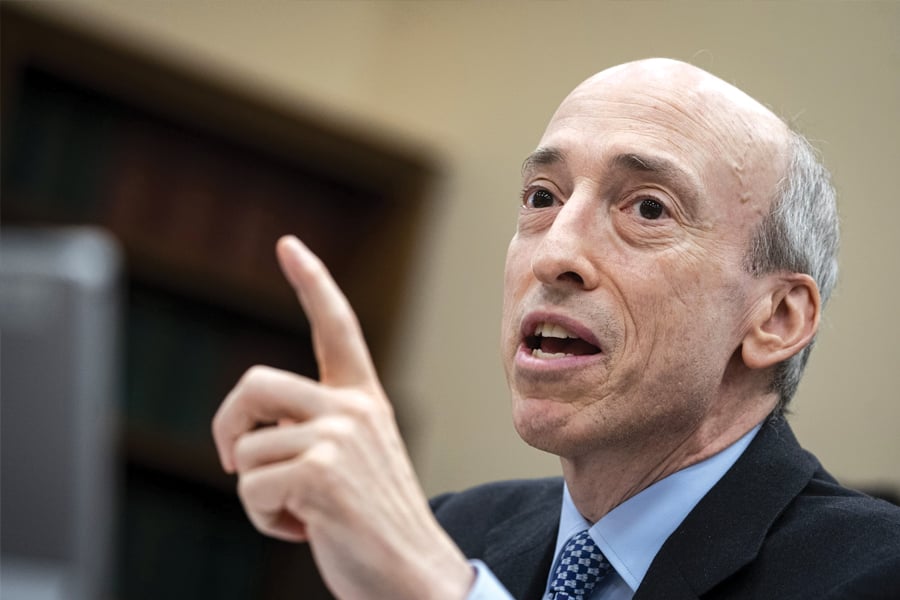

An SEC proposal targeting potential conflicts of interest for financial advisors using artificial intelligence is not meant as a way to modify Regulation Best Interest, Chair Gary Gensler said Tuesday.
The Securities and Exchange Commission introduced a proposed rule over the summer that would require investment advisors and brokers to remediate conflicts related to interactions with investors conducted through artificial intelligence, predictive data analytics and similar technology.
Under the proposal, advisors and brokers would have to eliminate or neutralize conflicts that arise when an algorithm encourages an investor to purchase an investment product or follow a strategy that does more to increase the advisors’ revenues than the investors’ returns.
Concerns that the AI proposal is a backdoor means to add more conflict remediation to what’s already required under Reg BI — the broker-dealer standard of conduct that went into force in June 2020 — surfaced at the Securities Industry and Financial Markets Association annual conference in Washington Tuesday.
“Would it be fair to say you’re trying to make it consistent with what you would have to do under Reg BI, whether it’s an algorithm or [other] advice?” SIFMA CEO Ken Bentsen Jr. asked Gensler in a conference session.
Gensler assured him that was the case.
“Largely speaking, yes. We’re not trying to change Reg BI or change the fiduciary guidance,” he said, referring to the SEC’s interpretation of the fiduciary standard for investment advisors.
What the agency is trying to do is target a situation that occurs when predictive data analytics can “narrowcast” and engage in “microtargeting” investors on product, pricing and communications, Gensler said.
If an app or algorithm is programmed to “optimize [an advisor's] revenue or profits, it’s going to tilt the recommendations,” he said. “It’s going to tilt the communications. It’s going to put some people in margin accounts or options that you wouldn’t otherwise do. It’s that basic thing we’re trying to address.”
As he tends to do at industry conferences, Gensler challenged the audience, which was made up of SIFMA members who are brokerage firm leaders and other market participants. He asked for a show of hands to indicate how many people “think it’s right if the algorithm is optimizing on the profits or revenues of the investment advisor.”
After a brief pause, Gensler announced the results.
“The record shows nobody raised their hands,” Gensler said to light laughter.
Talking to reporters on the sidelines of the SIFMA conference, Gensler elaborated on what is meant by the AI proposal’s directive for financial advisors to eliminate or neutralize conflicts.
“You should either take the investment advisor’s interest out of the algorithm or neutralize it,” Gensler said. “By neutralize, in essence, get to a place where the interests of the investors are ahead of the platform’s.”
How to achieve that outcome is open-ended.
“There are a number of ways to do it,” Gensler said. “We talk about that in the proposal but we’ve also received a lot of [public] comment and we’ll sort through that.”
The public comment period on the proposal has closed. It’s not clear when the SEC will take the next step in the rulemaking process.

Relationships are key to our business but advisors are often slow to engage in specific activities designed to foster them.

Whichever path you go down, act now while you're still in control.

Pro-bitcoin professionals, however, say the cryptocurrency has ushered in change.

“LPL has evolved significantly over the last decade and still wants to scale up,” says one industry executive.

Survey findings from the Nationwide Retirement Institute offers pearls of planning wisdom from 60- to 65-year-olds, as well as insights into concerns.
Streamline your outreach with Aidentified's AI-driven solutions
This season’s market volatility: Positioning for rate relief, income growth and the AI rebound
